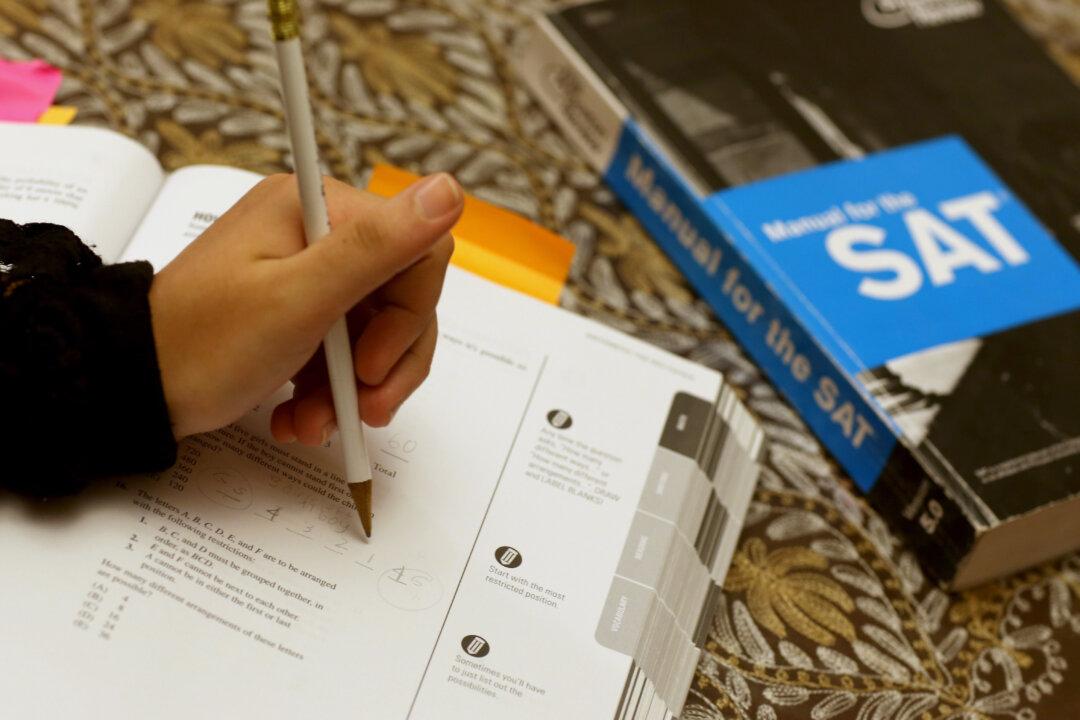In an article in the Summer 2014 issue of City Journal, I discussed the effort by the de Blasio administration, the NAACP, the United Federation of Teachers, and other “progressives” to replace the legally mandated merit-selection test for acceptance into Stuyvesant, Bronx Science, and New York City’s other elite high schools with “holistic” admissions criteria.
In the name of helping black and Latino students, I argued, affluent white liberals are advocating a selection system for these “specialized high schools” that would primarily benefit their own privileged children at the expense of poor and working-class Asian kids. A little-publicized move last month by de Blasio’s Department of Education seems to bear out this argument.
While a major legislative battle is expected next year on a bill to repeal the state law requiring an “objective” exam as the sole basis for admission to these schools, the DOE jumped the gun by issuing a Request for Proposals (RFP) for a new contract for design and implementation of the exam, known as the Specialized High School Admissions Test (SHSAT), from 2016 through 2020.
The RFP contemplates watering down the objective test with a subjective-essay component as part of the previously all-multiple-choice test—a change that would both violate the law and favor the glib scions of the professional elite over the studious children of immigrants.
The 1971 Hecht-Calandra Law, passed in response to an earlier effort to scrap the SHSAT as biased against minorities, mandates that admission to the specialized schools be based “solely and exclusively” on “a competitive, objective, and scholastic achievement examination.” Merriam-Webster defines an “objective” test as one “limited to choices of fixed alternatives and reducing subjective factors to a minimum,” thus excluding essays.
Illegal Essay
The DOE is moving to incorporate this illegal essay into the SHSAT just as the College Board is abandoning its nine-year experiment with an essay section in the SAT. In March, the Board announced that the SAT essay, introduced in 2005, would become optional starting in 2016.
The Board acted after years of derision sparked by a study by the head of MIT’s writing program, who found that an essay’s grade was primarily determined by its length, even if its content was incoherent—and that fancy words like “myriad” and “plethora,” even if used incorrectly, and hackneyed quotations like “the only thing we have to fear is fear itself,” even if wholly irrelevant to the topic, were also big point-getters.
This is probably inevitable when teenagers get 25 minutes to write about ponderous topics like “Is failure necessary for success?” and graders are expected to read 20 to 30 of these essays every hour—conditions that will likely also apply if an essay is added to the SHSAT.
One predictable outcome is that children who’ve heard words like “myriad” and “plethora” around the dinner table will have a big leg up, even if they don’t really know what they mean.
This may help explain the most puzzling thing about the essay proposal, which is that it’s hard to see how it would serve the progressives’ stated goal of increasing the small and dwindling black and Latino enrollment at the specialized schools. The “gold standard” National Assessment of Educational Progress (NAEP) has found that the writing skills of black and Latino students lag significantly behind those of whites and Asians; a study of SAT essay scores by the College Board found the same pattern.
So, unless the progressives are acting totally irrationally here, one has to look to other explanations. And both the realpolitik of the situation, and the Marxian class analysis usually favored by progressives, readily suggests one.
The reality is that the two major groups competing to get their children into these elite schools, which provide a free education and credentials equivalent to those available at the nation’s priciest prep schools, are the affluent white liberals who comprise Mayor de Blasio’s political base and Asian immigrants. And over the last 15 years or so, the contest has been decidedly uneven, with Flushing cleaning Park Slope’s clock.
Asians now outnumber whites, 73 percent to 22 percent at Stuyvesant and 60 percent to 24 percent throughout the specialized schools. It wouldn’t be unreasonable for those losing this race to think that an essay test, no matter how irrationally graded, might stem this tide by advantaging the children of facile professionals over those for whom English is a second language. (Three-quarters of the students at Stuyvesant are immigrants or the children of immigrants.)
It might not work, though. The NAEP and College Board studies noted above found that Asians actually outperformed whites in writing proficiency. But, hey, you can’t blame the progressive elite for trying. It’s about their kids, after all—and as they always protest, they really do believe in family values.
Dennis Saffran is an appellate attorney and former GOP city council candidate for the seat representing the 19th district in Queens. This article originally appeared on the Manhattan Institute’s City Journal website.

